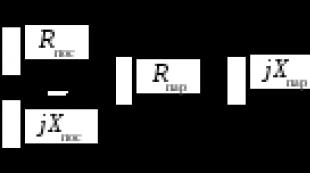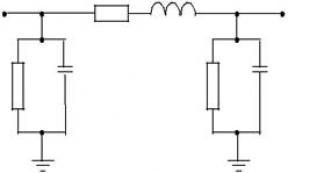Frankl's theory. Viktor Frankl: what is a holistic personality Fundamentals of Frankl's theory of personality
Theory of personal Frankl includes three main. components: the doctrine of the desire for meaning, about meaning of life and about free will. Main the thesis of the doctrine of the pursuit of meaning says: a person strives to find meaning and feels existential frustration or vacuum if his attempts remain unrealized. The desire for meaning Frankl considers as an innate motivational tendency inherent in all people and is the main. driving force of behavior and personality development. Lack of meaning gives rise to people. a state of existential vacuum, which is the cause of noogenic neuroses. The latter are rooted not in the psychic, but in the spiritual sphere of human existence.
Ch. the thesis of the doctrine of the meaning of life - the life of people. cannot lose its meaning under any circumstances; the meaning of life can always be found. With t.z. Frankl, meaning is not subjective, man. does not invent it, but finds it in the world, in the surrounding reality. Franchi offers ways by which people. can make his life meaningful: 1) with the help of what we give to life (in the sense of our creative work); 2) with the help of what we take from the world (in the sense of experiencing values); 3) through the position that we take in relation to the fate that we are not able to change. Accordingly, three groups of values, creativity, feelings and attitudes are distinguished. Values, in turn, are semantic universals crystallized as a result of generalization of typical situations that mankind had to face in history. In finding meanings, conscience helps a person, which is an intuitive ability to find the only meaning of a situation.
Main the thesis of the doctrine of free will says that people. is free to find and realize the meaning of life, even if his freedom is limited by objective circumstances. It's about human freedom. in relation to their drives, heredity, factors and circumstances external. environment. According to Frankl, pers. free because it has two foundations, psychol. characteristics: the ability for self-transcendence and self-detachment, that is, the ability to go beyond oneself, rise above the situation, look at oneself from the outside. Freedom, from t.z. Frankl, is closely connected with responsibility, primarily for the correct finding and realization of the meaning of one's life.
Psychotherapeutic. aspect of L. is to help the client find the lost meaning of life and thereby get rid of noogenic neuroses.
Other related news:
The very nature of man, his boundless plasticity and compensatory possibilities, extraordinarily enhanced thanks to culture, allow him to acquire meaning in almost any life situation. The search for meaning should not stop, even if under some conditions and circumstances it was not possible to find it. There will be other conditions and other circumstances in life, other opportunities to find the meaning of life.
A person who knows why he lives is as active as possible and can withstand any difficulties. Having no meaning of existence, he does not value either his own life or someone else's and practically destroys himself, negatively affecting other people and civilization.
Frankl believed that traditional psychotherapy only reveals in consciousness the deepest phenomena of mental life, and therefore developed logotherapy, which draws the attention of consciousness to genuine spiritual entities and is designed to lead to awareness of one's own responsibility, because it is precisely this that is the basis of human existence. It is necessary to help a person fill his life with meaning, so that he realizes: no one else will do it this way, you can’t do without him, he has his own mission, not a single drama of his life is wasted, but has super-sense, his whole life has its own unique purpose .
According to Frankl, there are situational and eternal values. The first person can carry out once in a lifetime, and if it is missed, then it is lost forever. Existential analysis helps us to make a choice in favor of situational value (for example, in choosing between reading a book and dating a loved one, it is more important to choose the second, otherwise this situational value will be lost forever). The purpose of logotherapy is to assist in achieving maximum focus on the life task facing the individual, or on the thing that one wants to do, without blocking or losing situational values, trying to do "the best that a person is capable of in a given situation. ".
Many people, especially neurotics, put off their affairs as if they were immortal. Since this is not the case at all, it is important to use the allotted time to the maximum, and only the person himself is responsible for his life. It doesn't matter if the work is not completed, what matters is the quality of it. The guiding principle of existential analysis can be figuratively represented as follows: you should approach any situation as if you are living for the second time and in a past life you already made a mistake like the one you can now make. Imagine yourself in such a situation and realize the depth of responsibility that you bear at any moment of your life.
But, on the other hand, Frankl warned that one should not strive to become perfect: if all people were like that, everyone could be replaced by another.
It is from our imperfection that the indispensability, the uniqueness of each and the value, the meaning of his life follows, since each of us is both imperfect in his own way and good in his own way, and our life acquires its own specific meaning in society if we do not mirror others. A person must live according to the formula: to be is to be different.
To be human means not only not to be like others, but also to be able to become different from oneself, that is, to be able to change, learn from one’s mistakes and draw conclusions for the future, improving oneself, one’s thoughts, actions, feelings, one’s life and even the lives of others.
Frankl notes that fate can appear before a person in three ways:
as a natural disposition or natural gift;
how the situation;
as an interaction of predisposition and situation,
which forms a human position, i.e. attitude towards something.
The position of a person can be changed, therefore people are not slaves of fate, they show freedom and choose their relationships and actions. Weak-willed, according to Frankl, becomes the one who has no goal and who does not know how to make decisions, who wants to remain so. It is impossible to justify oneself by wrong upbringing, as neurotics do. Its consequences can and should be corrected by conscious efforts.
3. Personality theory
Frankl's theory of personality has been expounded in several books, perhaps the most famous of which is Man's Search for Meaning, published in the late 1950s. and reprinted many times around the world. This theory consists of three parts - the doctrine of the pursuit of meaning, the doctrine of the meaning of life and the doctrine of free will. At the same time, he considers the desire to understand the meaning of life to be innate, and it is this motive that is the leading force in the development of the individual. Meanings are not universal, they are unique for each person at every moment of his life. The meaning of life is always associated with the realization of a person's capabilities and in this regard is close to Maslow's concept of self-actualization. However, Frankl's essential difference is the idea that the acquisition and realization of meaning is always connected with the external world, with the creative activity of a person in it and his productive achievements. At the same time, he, like other existentialists, emphasized that the lack of meaning in life or the impossibility of realizing it leads to neurosis, giving rise to states of existential vacuum and existential frustration in a person.
Frankl's theory of personality centers its position on the doctrine of values, i.e. concepts that carry the generalized experience of mankind about the meaning of typical situations. He identifies three classes of values that make it possible to make a person's life meaningful: the values of creativity (for example, work), the values of experience (for example, love) and the values of an attitude consciously accepted in relation to those critical life circumstances that we are not able to change.
The meaning of life can be found in any of these values and the actions generated by them. It follows from this that there are no such circumstances and situations in which human life would lose its meaning. Finding meaning in a particular situation Frankl calls "awareness of the possibilities of action in relation to a given situation." It is on this awareness that logotherapy is directed, which helps a person to see the whole range of potential meanings contained in a situation, and choose the one that is consistent with his conscience. At the same time, the meaning must not only be found, but also realized, since its realization is connected with the realization of the person himself.
In this realization of meaning, human activity must be absolutely free. Disagreeing with the idea of universal determinism, Frankl, like other psychologists and philosophers (Heidegger, Sartre, Maslow) who share his position, seeks to remove a person from the biological laws that postulate this determinism. In such attempts, scientists turned to the mind of man, and to his morality, creativity, etc. Frankl also introduces the concept of "noetic level" of human existence.
Recognizing that heredity and external circumstances set certain boundaries for the possibilities of behavior, he emphasizes the existence of three levels of human existence: biological, psychological and poetic, or spiritual, level. It is in the spiritual existence that those meanings and values are found that play a decisive role in relation to the lower levels. Thus, he formulates the idea of the possibility of self-determination, which is associated with the existence of a person in the spiritual world. In this regard, Frankl's concept of "noetic level" can be seen as broader in relation to those that associate free will with any one kind of spiritual life.
Frankl's theory of personality includes three main components: the doctrine of the pursuit of meaning, the meaning of life, and free will.
The main thesis of the doctrine is about striving into frustration or vacuum, if its attempts remain unrealized.
Frankl considers the desire for meaning as an innate motivational tendency inherent in all people and is the main driving force behind behavior and personality development.
Lack of meaning gives rise to a state of existential vacuum in a person, which is the cause of noogenic neuroses.
The latter are rooted not in the psychic, but in the spiritual sphere of human existence.
The main thesis of the doctrine of the meaning of life is that a person's life cannot lose its meaning under any circumstances; the meaning of life can always be found.
With t.z. Frankl, the meaning is not subjective, a person does not invent it, but finds it in the world, in the surrounding reality.
Frankl suggests ways in which a person can make his life meaningful:
with what we give to life (in the sense of our creative work);
with the help of what we take from the world (in the sense of experiencing values);
through the attitude we take towards a destiny that we cannot change.
Accordingly, three groups of values are distinguished: creativity, experiences and relationships.
Values, in turn, are semantic universals crystallized as a result of generalization of typical situations that mankind had to face in history.
In finding meanings, conscience helps a person, which is an intuitive ability to find the only meaning of a situation.
The main thesis of the doctrine of free will says that a person is free to find and realize the meaning of life, even if his freedom is limited by objective circumstances.
We are talking about the freedom of a person in relation to his inclinations, heredity, factors and circumstances of the external environment.
According to Frankl, a person is free because he has two fundamental psychological characteristics: the ability to self-transcend and to self-detachment, that is, the ability to go beyond oneself, rise above the situation, look at oneself from the outside.
Freedom, from t.z. Frankl, is closely connected with responsibility, primarily for the correct finding and realization of the meaning of one's life.
- The life and work of Viktor Frankl
- The meaning of life according to V. Frankl
- V. Frankl's personality theory
Work description
Frankl was born in Vienna to a Jewish family of civil servants. AT young age showed interest in psychology. My thesis in the gymnasium devoted to the psychology of philosophical thinking. After graduating from high school in 1923, he studied medicine at the University of Vienna, where he later chose to specialize in neurology and psychiatry. He studied the psychology of depression and suicide especially deeply. Frankl's early experience was influenced by Sigmund Freud and Alfred Adler, but later Frankl would move away from their views.
Viktor Frankl (born 1905) is another prominent personologist and psychotherapist of our time. He entered psychology as the founder of the third Vienna School of Psychotherapy. The first Viennese school was the psychoanalysis of Z. Freud, the second school of "individual psychology" was created by A. Adler. V. Frankl - a Viennese clinician, was engaged in psychotherapeutic practice, by the end of the 30s. notes that his clients are more often concerned not with the problems of repressed sexual desires, as in the days of Z. Freud, but with the loss of the meaning of life, life values, loneliness, etc. He formulates the position that each time has its own psychological problems and neuroses , and by the beginning of the Second World War, he was finishing the manuscript of his first book - "Healing the Soul", where he developed the main ideas of a new concept of personality. At the center of it is the doctrine of the innate tendency to search for the meaning of life.
But the war brings terrible trials to the scientist: for four years he becomes a prisoner of fascist concentration camps. The experience of human suffering and the "stubbornness of the spirit" that helped to survive in the death camps highlights in a new way the main ideas of his teaching.
V. Frankl builds the building of personality psychology in a different way. In his theory of existential analysis, several components can be distinguished: about the spiritual essence of man and free will; meaning of life and values; about logotherapy. Let's consider them in more detail.
The doctrine of the spiritual essence of man is the main core of the creative heritage of V. Frankl, around which he builds his other theoretical concepts: "Man is more than the psyche: man is the spirit." Each of us feels, realizes the spiritual principle in ourselves. But traditionally the phenomenon of spirituality was comprehended in theology, philosophy, literature, art. V. Frankl, following K. Jung and K. Rogers, introduces the concept of spirituality into the categorical structure of modern psychology and highlights its most significant manifestations and characteristics. Spirituality is considered by him as a spiritual principle, which, like a spark of God, is embedded in the soul of every person and unites all people. It is the co-presence of being to everything that is.
In the sphere of human spirituality, the author identifies layers of conscious and subconscious spirituality. The layer of subconscious spirituality contains the sources and roots of everything conscious. "The spirit rests on the unconscious." V. Frankl analyzes the leading manifestations of the unconscious spiritual. Among them, he refers primarily to conscience, or moral intuition. Conscience discovers something that does not yet exist, but only should exist. This is spiritual anticipation, anticipation. God is in the human soul, he prompts "what is needed." “However, what is needed is always only one.”
Further, the spiritual unconscious, according to V. Frankl, manifests itself in cognitive and artistic intuition. “Inspiration is rooted in the realm of unconscious spirituality. The artist creates by inspiration, and therefore the sources of his creativity are and remain in darkness, which consciousness is not able to fully illuminate.
Another sphere of manifestation of the unconscious spirituality of a person is love. V. Frankl notes that complete spiritual co-presence or an event is possible only between beings equal to each other. He calls the complete surrender of himself to another without a trace love. This is the ability to understand a person in his essence, uniqueness and in his potentialities. Love, with its spiritual gaze, anticipates the unrealized prospects for the personal and spiritual development of a person, reveals in him that which can only be.
Intentionality, or the original individual openness to the world. “The essence of a person includes his focus on something or someone, on a deed or on a person, on an idea or on a person! And only insofar as we are intentional, insofar as we are existential... A person is not here to observe or reflect himself, he is here to represent himself, to sacrifice himself, to give himself knowing and loving.
The desire for self-transcendence, or a person’s going beyond himself, in his direction to realize himself in his values, meanings, actions;
The desire for self-reflection, or self-regulation.
The internal source of these impulses is free will. V. Frankl's doctrine of spirituality and free will are interconnected. Spirituality, freedom and responsibility are considered by him as the main existentials of human existence. The spirituality of a person is realized through his inner freedom. “Necessity and freedom are not localized on the same level: freedom rises, is built on top of any necessity. Caused chains are always and everywhere closed and at the same time open in higher dimension, are open to higher "causation". Only divine providence rises above free will.
V. Frankl characterizes the freedom of a person in relation to inclinations, heredity and circumstances of the external environment. In interaction with all these factors, a person can develop his attitude, position, say “yes” or “no” to them. But freedom is not limited to these three categories, they are understood more broadly. It is the freedom to take responsibility for one's destiny, the freedom to change, to be like this, to become different. A person decides for himself, and a decision for himself is the formation of himself.
The theory of existential analysis recognizes a person as free, but only conditionally. It is often limited by subjective circumstances. Realizing his freedom, he makes choices and takes responsibility for their implementation. Freedom devoid of responsibility degenerates into arbitrariness. A person is responsible for the authenticity of his being, for finding and realizing the meaning of his life, for his life.
Another direction in the theory of existential analysis is the doctrine of the meaning of life and values. Summarizing his life and clinical observations, the author formulates the thesis that a person strives to find the meaning of life, and feels a vacuum, or frustration, if this desire remains unfulfilled. This primordial spiritual aspiration is inherent in all people, it is the main engine of behavior and personality development, but it is far from being always sufficiently clearly realized. The meaning of life for a person always exists, even under special, most difficult and hopeless circumstances. If a mental patient has a close emotional connection with any person, his life is already justified. For a person, the meaning of his being is not subjective, he does not invent it, but finds it in the world, in objective reality, but this meaning is unique and inimitable for everyone.
V. Frankl speaks about the specific meaning of the life of a given person in a given situation. Any period life path individual, each situation carries its own meaning, different for different people, but for a person it is the only true one. Conscience, i.e. moral intuition, as well as intuition - cognitive and artistic - help in finding meanings. V. Frankl introduces the concept of super-sense, i.e. the meaning of the Universe, the meaning of being, the meaning of history. This category is transcendent to human existence, therefore we cannot know about it, we can only assume that it is realized through history, the destinies of nations, individual people.
The meaning of life can always be found for each person. But finding your unique meaning in specific circumstances is only half the battle. We still need to implement it. For this, free will is given to find and realize it, even if freedom is noticeably limited by objective circumstances. Man is responsible for realizing the unique meaning of his life.
V. Frankl considers the most generalized meanings of life as life values. He distinguishes three groups: the values of creativity, the values of experiences and the values of relationships. This series reflects the three main ways in which you can find the meaning of life. The first is what he gives to the world in his creations, the second is what he takes from the world in his encounters and experiences; the third is the position he takes in relation to the other or situations.
Among these groups of values, priority belongs to the values of creativity, which are realized through labor. The values of creativity are associated with the original spiritual impulse of a person to transcendence, the desire to go beyond oneself and realize oneself in deeds, creations, and service to people. In accordance with this, self-actualization, according to V. Frankl, is not an end in itself, but one of the results creative activity. The value of experiences is another way of gaining meaning in life. In this regard, V. Frankl reveals the value potential of love and the potential of suffering, which act as sources of emotional and spiritual saturation. However, both love and suffering are not necessary condition meaningfulness of life. An individual who has never loved and never been loved can nevertheless organize his life in a very meaningful way.
The third group is the value of attitude, which V. Frankl attaches to highest value. A person, he writes, is far from always able to change circumstances, but it is in his power to change his attitude towards them. Under any circumstances, he is free to take a meaningful position towards circumstances, to raise or minimize their significance for himself.
Once we add relational values to other categories of values, it becomes clear that human existence can never be intrinsically meaningless. Human life retains its meaning until the end - until the last minute.
And, finally, one more direction in the creative heritage of V. Frankl - proposed by him new method psychotherapy - logotherapy. Logotherapy (from the ancient Greek "logos" - meaning) aims to help a person in his search for the meaning of life. According to logotherapy, the struggle for the meaning of life is the main driving force of man. The absence of meaning gives rise to a state in a person, which V. Frankl called "existential frustration". Subjectively, it is experienced as a feeling of inner emptiness, meaninglessness of existence. This state can deepen and give rise to specific "puffed neuroses" (from the Greek "pus", meaning spirit, meaning). Empowered neuroses are causally rooted in a special spiritual sphere of the personality, in which meanings are localized. V. Frankl called it the "poetic dimension" of a person.
Logotherapy aims to help a person find his one and only meaning in a given situation. And he must do it himself. Logotherapy aims to empower clients to see the full range of potential meanings that a given situation may contain. It uses the method of spiritually-oriented dialogue, which allows you to push the client to discover adequate meaning for himself. V. Frankl showed that the greatest practical achievements of logotherapy are associated with the values of relationships, with people finding the meaning of their existence in situations that seem extremely difficult or hopeless.
The author describes cases when a psychotherapist helps a client find meaning in suffering, change their attitude towards them. “I once had an elderly medical practitioner consult with me about his severe depression. He could not survive the loss of his wife, who died two years ago and whom he loved more than anything in the world ... I put the question to him: “What would happen, doctor, if you died first, and your wife would have survived ? “Oh,” he said, “it would be terrible for her, how she would suffer ...”. He didn't say a word, just shook my hand and silently left. Suffering somehow ceases to be suffering the moment its meaning is revealed, such as the meaning of sacrifice.
Similar information.
1. A person's desire to find and realize the meaning of his life is an innate motivational orientation of a person, which acts as the main engine of behavior and personality development.
2. Meaning is in the objective world; a person should not choose or “invent” it, but find it by realizing oneself in life and activity.
3. The meaning of life is unique for each person. A person can make his life meaningful by implementing three main ways of his development and focusing on three groups of values:
Through what a person can give to life - creative activity (values of creativity);
By the fact that a person is included in the experience of the values that he finds in the world (values of experience);
Through the position taken in relation to the fate and circumstances of his life, which he cannot change (relationship values).
4. The acquired meaning requires from a person its constant implementation, which leads to self-actualization of the personality.
5. A person is free to find and realize the meaning of life, is free to take responsibility for his own destiny, even if his freedom is objectively limited by circumstances. This is possible due to fundamental human qualities.
The ability to self-transcendence - the possibility of a mental exit of a person beyond himself, in the direction of something that exists outside.
The ability to self-detachment is the ability in any situation to rise above oneself and above the situation, to look at oneself from the outside.
6. A necessary condition for the mental health of a person is a certain level of tension that arises between a person and an objective meaning localized in the outside world, which a person must realize.
Lack of meaning gives rise to a state of "existential vacuum" in a person, which is the cause of a wide variety of neuroses.
7. There is no meaning of life "in general" - there is a specific meaning of the life of a given person at the moment. The meaning of life changes from situation to situation.
It is impossible for a person to grasp the "super-sense" of the world, but such a "super-sense" exists. It is carried out independently of the life of individual individuals.
Humanistic psychology.
Maslow. As a central characteristic of personality, he identifies a hierarchy of levels of needs. And all needs are innate. Needs in order of priority: physiological, safety protection, belonging and love, self-respect, self-actualization.
The schema is based on the assumption that dominant needs below must be more or less satisfied before a person can become aware of and be motivated by needs above.
The key point is that needs are never met on an all-or-nothing basis. Needs overlap, and a person can be motivated at two or more levels of needs at the same time.
Physiological - the biological survival of man.
Security and protection - organization of stability, law, order, predictability of events, freedom from threatening forces (interest in long-term survival).
Belonging and love - attachment with others (family or group). Deficit love is due to a lack of something, binary love is the value of another.
self esteem- self-respect (competence, confidence, achievement, freedom) and respect by others (prestige, recognition, reputation, status).
Self-actualization- the desire of a person to become what he can become. Reach your potential.
Domestic psychology.
In the study of personality structure, the main characteristic is orientation.
Rubinstein– dynamic trend;
Leontiev- semantic motive;
Myasishchev- dominant attitude;
Ananiev- the main direction of life.
Orientation is a capacious descriptive characteristic of the personality structure.
A.N.Leontiev.Parameters (grounds) of personality:
1. The richness of the individual's connections with the world;
2. The degree of hierarchization of deeds, their motives. Hierarchies of motives form relatively independent units of life;
3. General type of personality structure.
Personality structure- a relatively stable configuration of the main, internally hierarchized motivational lines. The diverse relationships in which a person enters into reality give rise to conflicts, which, under certain conditions, are fixed and enter the structure of the personality. The structure of the personality does not come down to the richness of a person's connections with the world, nor to the degree of their hierarchization; its characteristic lies in the ratio of different systems of existing life relations, giving rise to a struggle between them.
Psychological substructures of personality- temperament, needs, drives, emotional experiences, interests, attitudes, skills, habits - some in the form of conditions, others in changes in their place in the personality, in generations and transformations.
Dual personality structure:
1. Socio-typical manifestations of personality are systemic social qualities of the first order;
2. Personal-semantic manifestations of personality are system-specific integrative social qualities of the second order. The personal-semantic manifestations of a personality represent a form of social qualities specifically transformed in the process of activity in the individual life of a person. System-social qualities express the general tendency of a developing personality to be preserved, system-specific personality-semantic qualities represent its tendency to change. To the search for ways of its further development, in a world full of surprises..
Ecology of life. People: As soon as it comes to personality, another concept involuntarily pops up in our minds, with which it intersects ...
We publish Viktor Frankl's Ten Theses on Personality, in which the famous Austrian psychiatrist talks about the existential basis of human existence, and explains what a "holistic personality" is, why a person is not determined by drives, as psychoanalysis says, but is focused on creating meanings, and how the attempt to exalt oneself in class, mass, or race actually leads to the renunciation of the individual.
The famous Austrian psychiatrist Viktor Frankl, based on his difficult military experience, managed to create a unique method of logotherapy based on the search and analysis of the meanings of existence - in all manifestations of life, even the most terrifying ones. Frankl packs one of the main ideas of his method into a simple formula:
A person should not ask what is the meaning of his life, but rather should realize that he himself is the one to whom this question is addressed.
The article that we bring to your attention today describes the theses that underlie Frankl's theory of personality, consisting of three parts:
- the doctrine of the pursuit of meaning,
- teachings about the meaning of life
- the doctrine of free will.
At the same time, he considers the desire to understand the meaning of life to be innate, and it is this motive, according to Frankl, that is the leading force in the development of the individual. There are no universal meanings - they are unique for each person, and every second we create and realize these meanings, thereby realizing ourselves.
Ten theses about personality
As soon as it comes to personality, another concept involuntarily pops up in our minds, with which the concept of personality intersects - the concept of "individual". The first thesis we put forward is precisely the following:
I
A person is an individual, a person is something indivisible - it cannot be divided or split, since it is a single whole. Never in so-called schizophrenia or "split consciousness" does it come to a real split in personality. In relation to other morbid conditions in clinical psychiatry, we are also not talking about split personality, today we are talking not about “double consciousness”, but rather about changing consciousness. And when Bleuler introduced the concept of schizophrenia, he hardly saw a real splitting of the personality, rather, the splitting off of a certain complex of associations from it - a possibility that his contemporaries believed in, standing under the banner of associative psychology of that time.
II
Personality is not only indivisible, but also uncompoundable; i.e., it not only cannot be decomposed into parts, but it cannot be synthesized from separate parts - since it represents not only unity, but also integrity. Therefore, a person cannot become higher in structures of a higher order - for example, in a mass, in a class or in a race: all these “unities”, or “integrities”, of a higher order than a person, are not personal, but in the highest degree pseudo-personal character. The person who expects to rise in them, in reality, simply drowns in them; “Rising” in them, he, in essence, renounces himself as a person.
In contrast to personality, organic matter is precisely divisible and fully synthesized. At least, this was proved to us by the well-known experiments of Driesch with sea urchins. And more than that: divisibility and connectability are a condition and a prerequisite for such an important phenomenon of life as reproduction. From this it follows nothing more and nothing less than the fact that the person as such cannot reproduce. The organism created by the parent organisms reproduces; personality, personal spirit, spiritual existence - a person cannot transfer them to another.
© Adam Martinakis
III
Each individual person is something absolutely new. Let's think about it: the father after intercourse weighs a couple of grams less, and the mother after childbirth - a couple of kilograms; however, the spirit does not lend itself to any calculation. Do parents, when a new spirit arises at the birth of their child, become poorer in spirit? Or, when a new You arises in a child - a new being who can say "I" about himself - can his parents after that say "I" about himself even one iota less? We see that with each person who comes into the world, into being, into reality, something absolutely new enters; because spiritual existence is inexpressible, the child does not inherit it from the parents. Inherited only construction material- but not a builder.
IV
The person is spiritual. This means that it is heuristic to oppose the spiritual personality to the psychophysical organism. An organism is a collection of organs, in other words, instruments. The function of the organism - the task it must perform for the person who is its carrier and of which it serves - is primarily instrumental, but also expressive: the person needs her organism in order to be able to act and express herself. As an instrument in this sense, the organism is a means to an end, and as such has practical utility. The concept of utility is opposed by the concept of dignity; Dignity is only possessed by the individual, and independently of any vital or social usefulness.
Only those who do not understand this, and those who forget about it, can consider euthanasia justified. Those who know about the dignity, about the unconditional dignity of each individual person, treat the human person with deep reverence - including sick people, including incurable patients and incurable mentally ill people. After all, in fact, there are no “spiritual” diseases at all. For the "spirit", the spiritual personality itself, cannot get sick at all, it persists even in the case of psychosis, even if it is practically "invisible" to the psychiatrist.
I once formulated this as a psychiatric creed: to believe in the preservation of the spiritual personality behind the obvious symptoms of psychotic illness as well; for, if this is not the case, then why should the doctor put in order or “repair” the psychophysical organism itself? Indeed, one who sees only this organism and loses sight of the personality behind it should be ready to euthanize an organism that cannot be repaired, due to the loss of practical utility by this organism: after all, he knows nothing about the dignity of the personality that does not depend on this utility. . The doctor who thinks in this way presents his work as "medical technique"; however, such thinking only shows that the patient is a mechanism for him.
Not only the disease refers only to the psycho-physical organism, and not to the spiritual personality, but also the treatment. This must be said in connection with the question of leucotomy. Even the scalpel of a neurosurgeon - or, as they say today, a psychosurgeon - cannot touch a spiritual person. The only thing that leucotomy can achieve (or do) is to affect the psychophysical conditions in which the spiritual person is located - in those cases when this operation was indicated, these conditions improved steadily. Thus, the expediency of such an intervention depends, in the final analysis, on a careful weighing of what is in this case a lesser and a greater evil; it must be weighed whether the damage that the operation can cause is less than that which exists due to the disease. In this case alone, surgery is justified. In the end, it is inevitable for any medical action to sacrifice something, that is, to pay a lesser evil for providing the conditions under which the personality, no longer constrained and not limited by psychosis, can realize itself and fulfill itself.
One of our own patients suffered from the most severe obsession and for many years was subjected not only to psychoanalytic and individual psychological treatment, but also to insulin, cardiazole and electroshock therapy - without success. After unsuccessful attempts at psychotherapy, we recommended leucotomy, which led to a really amazing success.
Let's leave the word to the patient herself: “I feel much, much better; I can work again the way I did when I was healthy; obsessive ideas remain, but I can fight them; for example, before I could not read at all because of them, I had to re-read everything ten times; Now I don't have to read anything anymore.
And here is how things stand with her aesthetic interests - the disappearance of which many authors speak: "I finally felt a great interest in music again."
And what about her ethical interests? The patient expresses living compassion and expresses only one wish arising from this compassion: that others who suffer the same way as she once could receive the same help!
And now let's ask her about whether she feels that she has somehow changed: “I live now in a different world; it can't really be put into words; before there was no place for me in the world, before I only vegetated in the world, but did not live; I was too exhausted; now it's gone; the little that still comes up, I will be able to overcome soon.”
(Have you remained yourself?) "I have become different." (How much?) "Now I have a real life again." (When did you rather be or become “yourself”, before or after the operation?) “Now, after the operation; now everything is much more natural than then; then everything was intrusive; for me there were only obsessive ideas; now everything is rather as it should be; I went back again; before the operation, I was not a person at all, but only a burden for humanity and for myself; now other people tell me that I have become completely different. ”
When asked directly if she had lost her Self, she replied as follows: “I lost it before; after the operation, I returned to myself, to my personality again. (When questioning, we deliberately avoided this word!) Thus, this woman became a person after the operation, she became “herself”.
But not only physiology, it turns out, does not reach the personality, but psychology also fails to do this - at least when it falls into psychologism. To see the personality, or at least to approach it categorically adequately, rather, noology is required.
As you know, once there was a "psychology without a soul." It has long been overcome, but today's psychology still cannot avoid the reproach that it is often a psychology without a spirit. This non-spiritual psychology, as such, is not only blind to the dignity of the individual, as well as to the individual itself, but does not see values either - it is blind to values, which are the value correlate of personal existence, to the world of meanings and values as a cosmos, - blind to logos.
Psychologism projects values from the spiritual space onto the spiritual plane, where they become multi-valued: on this plane, psychological or pathological, it is no longer possible to distinguish between the visions of Bernadette and the hallucinations of some hysterical woman. In lectures, I usually explain this to students this way: I point out to them that it is no longer possible to restore from a two-dimensional drawing of a circle whether it is a projection of a three-dimensional ball, cone or cylinder. In the psychological projection, conscience becomes a "super-ego" or "introjection" of the "father image", and God becomes a "projection" of this image - whereas in reality this psychoanalytic interpretation is itself a projection, namely a psychologizing one.
V
Personality is existential; this means that it is not factual, does not belong to the factual. Man as a person is not an actual, but an optional being; he exists as his own possibility, for or against which he can decide. Human existence, as Jaspers said, is "decisive" existence: a person always decides what he will be in the next moment. And as a decisive being, it is diametrically opposed to the way it is understood in psychoanalysis: namely, to being drawn. Human existence, as I emphasize again and again, in its deepest basis is a responsible existence. This means something more than just being free: responsibility also contains the “why” of human freedom - that for which a person is free, for which or against which he decides.
Thus, in contrast to psychoanalysis, personality in existential analysis, as I tried to outline it, is understood not as determined by drives, but as meaning oriented. From an existential-analytical point of view - in contrast to the psychoanalytic - it strives not for pleasure, but for values. In the psychoanalytic concept sexual attraction(libido!) and in the concept of social belonging of individual psychology (a sense of community!) we see nothing more than a state of deficiency of a more fundamental phenomenon - love. Love is always a relationship between some I and some You. Of this relation in the psychoanalytic picture, only the “it”, i.e. sexuality, remained, and in the picture drawn by individual psychology - impersonal sociality, one might say, “das Man”.
If psychoanalysis sees human existence as subject to the desire for pleasure, and individual psychology as defined by the "will to power", then existential analysis sees it as permeated by the desire for meaning. He knows not only the “struggle for existence” and, in addition, if necessary, also “mutual assistance” (Peter Kropotkin), but also the battle for the meaning of being - and mutual support in this battle. In fact, it is precisely this support that is what we call psychotherapy: it is, in fact, “medicine of the personality” (Paul Tournier). From this it is clear that in psychotherapy, ultimately, we are not talking about switching the dynamics of affects and the energy of drives, but about an existential restructuring.
VI
Personality refers to the I, and not to the It; she is not dictated by It is dictated which, in a certain sense, Freud may have suffered, since he insisted that I was not the master in my own house. Personality, I, not only dynamically, but also genetically, is in no way derived from the Id, from the sphere of drives: the concept of "ego drive" should be rejected as very, very internally contradictory. But the personality is also unconscious, and spirituality in its origins, from where it originates, not only can be, but is necessarily unconscious. In its origins, in its basis, the spirit does not lend itself to reflection and is therefore a purely unconscious instance.
Thus, one must clearly distinguish between the instinctive unconscious, with which psychoanalysis alone deals, and the spiritual unconscious. Unconscious spirituality also includes unconscious faith, unconscious religiosity - as an unconscious, and even often repressed, connection of a person with the beyond.
The discovery of this unconscious religiosity is the merit of K.G. Jung, but his mistake was that he localized this unconscious religiosity where unconscious sexuality is located - in the sphere of unconscious drives of the id. However, I am not attracted to faith in God and to God himself, I have to make my own decision “for” or “against”. Religiosity is connected with the Self - or it is not at all.
VII
Personality is not only unity and integrity, it also creates unity and integrity: it creates the body-soul-spiritual unity and integrity, which is the person. This unity and integrity is created, based and provided only by the personality - only the personality builds it, keeps it on itself and guarantees it.
To us, people, the spiritual personality is generally known only in a single existence with its psychophysical organism. Thus, a person is a point of intersection, a crossroads three levels of being:
- bodily,
- sincere,
- spiritual.
These levels of being cannot be clearly separated from each other (see: K. Jaspers, N. Hartman). Therefore, it would be wrong to say that a person “consists of” bodily, mental and spiritual principles: he is precisely a unity or integrity, but within this unity or integrity the spiritual in a person “opposes” the bodily and spiritual in him. This is what I once called noopsychic antagonism. If psychophysical parallelism is inevitable, then noopsychic antagonism is facultative: it is always only a possibility, a simple potentiality - indeed, a potentiality to which one can always appeal (and to which the doctor should appeal).
Against such a powerful opponent as psychophysics, it is always important to call for help what I once called "stubbornness of the spirit." cannot do without referring to it, and I called it the second - psychotherapeutic - creed: faith in the ability human spirit under all conditions and under all circumstances, somehow rebuild and move a fruitful distance from the psychophysical principle.
If - in accordance with the first, psychiatric credo - it was not a question of "repairing" the psychophysical organism, which is impatiently awaited by a spiritual personality that is integral, despite all illnesses, then we would be completely unable to call (in accordance with with the second credo) the spiritual in a person to stubborn opposition to the body-spiritual in him, because then there would be no noopsychic antagonism.
VIII
The personality is dynamic: it is precisely due to the fact that it can distance itself and rebuild itself from the psychophysical principle that the spiritual manifests itself in general. We must not hypostasize the spiritual personality as dynamic and therefore cannot qualify it as a substance - at least as a substance in the prevailing sense of the word. To exist, to exist means to go beyond one's own limits and enter into a relationship with oneself, and a person enters into a relationship with himself insofar as he, as a spiritual personality, treats himself as a psychophysical organism. This self-distance from oneself as a psychophysical organism constitutes the spiritual personality as such. Only when a person collides with himself does his spiritual and body-spiritual principles stand out for the first time.
IX
An animal is not a person, if only because it is not able to rise above itself and relate to itself. Therefore, the animal does not have the world as a correlate of personality, but only the environment. If we try to extrapolate the relation "animal - man" or "environment - world", then we will come to the "super-world".
In order to determine the ratio of the (narrow) environment of the animal to the (wider) world of man and of this latter to the (all-encompassing) super-world, a comparison with the golden ratio suggests itself. According to him, the smaller part is related to the larger one in the same way as the larger part is to the whole.
Take, for example, a monkey that was given a painful injection in order to obtain serum. Can a monkey ever understand why it has to suffer? Out of her midst, she is unable to listen to the considerations of the man who includes her in his experiment; because the human world, the world of meaning and value, is inaccessible to her. She can't reach him, she can't enter his dimension.
But shouldn't we assume that above the human world, in turn, is located a world that surpasses it and is inaccessible to man, the meaning, more precisely, the "super-sense" of which alone can give meaning to all human suffering? Man can no more comprehend the super-world than an animal from its environment can comprehend the wider human world. He, however, can catch it in premonition - in faith. A tamed animal does not know the purpose for which a person harnesses it. How, then, can a person know the super-sense of the world as a whole?
X
Personality comprehends itself only through the transcendent. Moreover, a person is also a person only to the extent that he understands himself through the transcendent - he is a person only to the extent that he comes from the person (“personifies”), responding to the call of the transcendent and being filled with it. He also hears this call of the transcendent in the voice of conscience.
For logotherapy, religion is and can only be an object, not a foundation. Logotherapy must operate on this side of faith in revelation and answer the question of meaning on this side of the fork between theistic and atheistic worldviews. And if it thus considers the phenomenon of faith not as faith in God, but as a broader faith in meaning, then it has every right to touch upon and deal with the phenomenon of faith. In this understanding, she converges with Albert Einstein, according to whom, to question the meaning of life is to be religious.
Meaning is that stone fence beyond which we cannot go, which we must rather accept: we must accept this last meaning, because we cannot ask further - because the attempt to answer the question about the meaning of being always presupposes the being of meaning.
In short, human faith in meaning is a transcendental category in the sense of Kant. We have known since Kant that it is somehow meaningless to ask the question about the categories of space and time, simply because we cannot think, and therefore ask the question, without assuming the existence of time and space. In the same way, human being is always a meaning-directed being, even if the person himself is unaware of it: there is always a certain pre-knowledge of meaning, and the anticipation of meaning is at the basis of what in logotherapy is called "striving for meaning."
Whether he wants it or not, whether he admits it or not, a person, while he breathes, always believes in the meaning. Even a suicide believes in the meaning, if not in its continuation, then in the meaning of death. If he really did not believe in any sense, absolutely in any - he would not be able to lift a finger and thereby commit suicide. published
Join us at









